Diaspora Delights
From a Liberian pop-up concept to indulgent chocolate bars made from small Nigerian farms, the following culinarians are reclaiming the power of African food and culture.
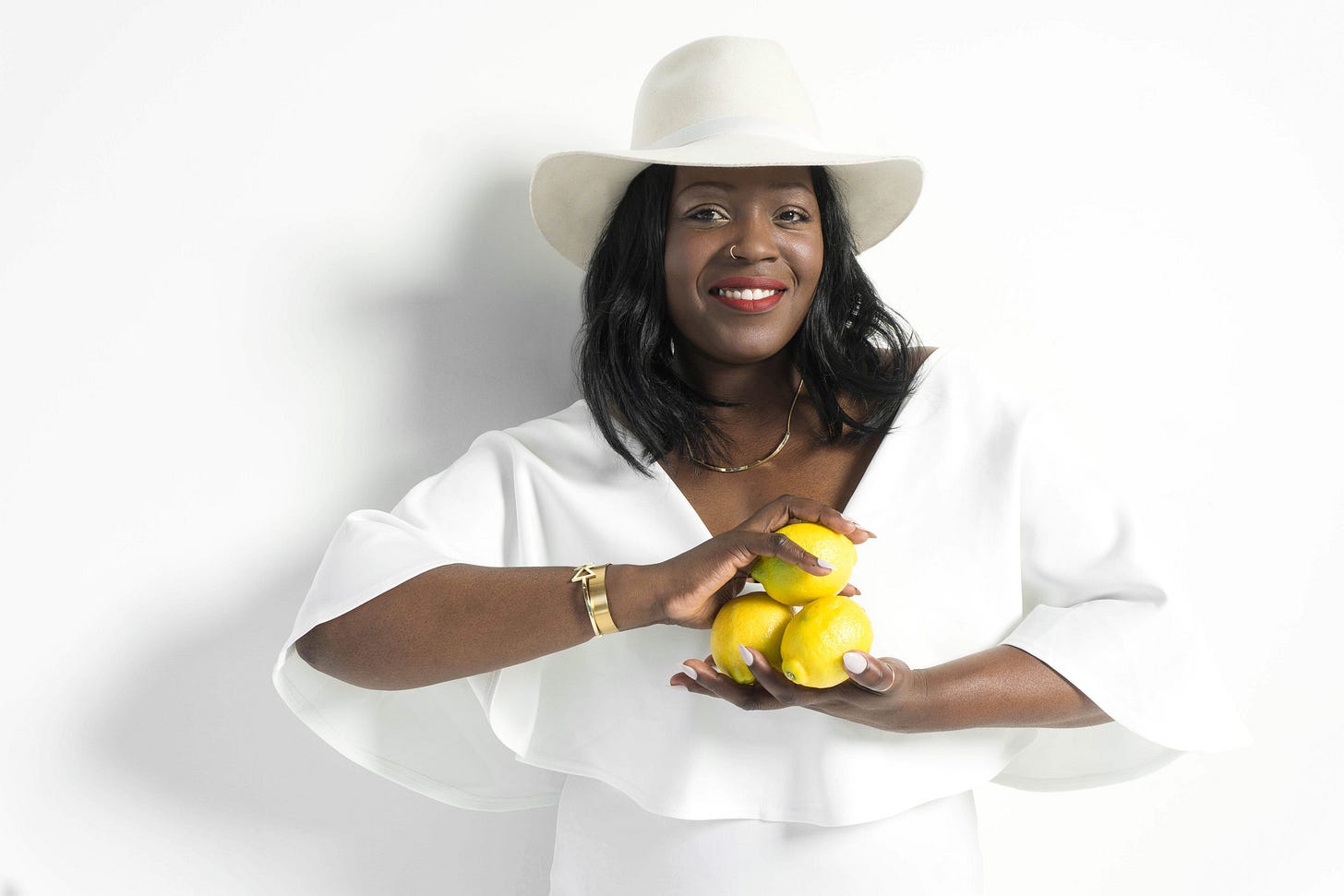
How much do we really know about Liberia?
Save for Michael Jackson’s beautiful “Liberian Girl” ballad from the 1990s featuring Naomi Campbell, I’d have to say not much.
Most know the coastal country as an outpost for formerly enslaved Black Americans, who founded it in 1822. Some are even lucky enough to know their direct ties to Liberia, such as Carleen Goodridge, whose parents, grandparents and great grandparents were born there.
The talented chef and caterer, who celebrates 12 years in the industry in November, educates diners about her home country through its cuisine. Through Liberian-inspired pop-up dinners she’s hosted in various restaurants on the East Coast, Goodridge features traditional dishes as well as “grazing” tables of smaller bites for guests to get familiarized with the food that has nourished her since childhood.
“I consider Liberian food soulful tropical food,” Goodridge explains. “That means you get that soulful, you get that southern feel of good stews, good dishes, especially great rice dishes, but because of the ingredients available in West Africa, in a coastal country, you’ll get the addition of the amazing seafood that our African lineage is used to.”
She says she developed the Liberian pop-up concept after her children asked why she only made her native food for special occasions.
“I felt called out,” Goodridge admits. “I never noticed that I was making our West African cuisine for holidays only. It wasn't an everyday thing. Although growing up we ate it, that was the standard.”
When a cafe in Baltimore, Maryland, offered her to do a “chef takeover” of the establishment several years ago, she decided to create a contemporary supper club concept featuring Liberian cuisine. “I decided to listen to my babies,” she recalls. “I called it ‘Dinner Afrique.’ It took it to a whole other level for myself because it also started allowing me to hold myself accountable to my lineage, to my legacy, to my culture. I wanted to share the Liberian and American connection with so many others.”
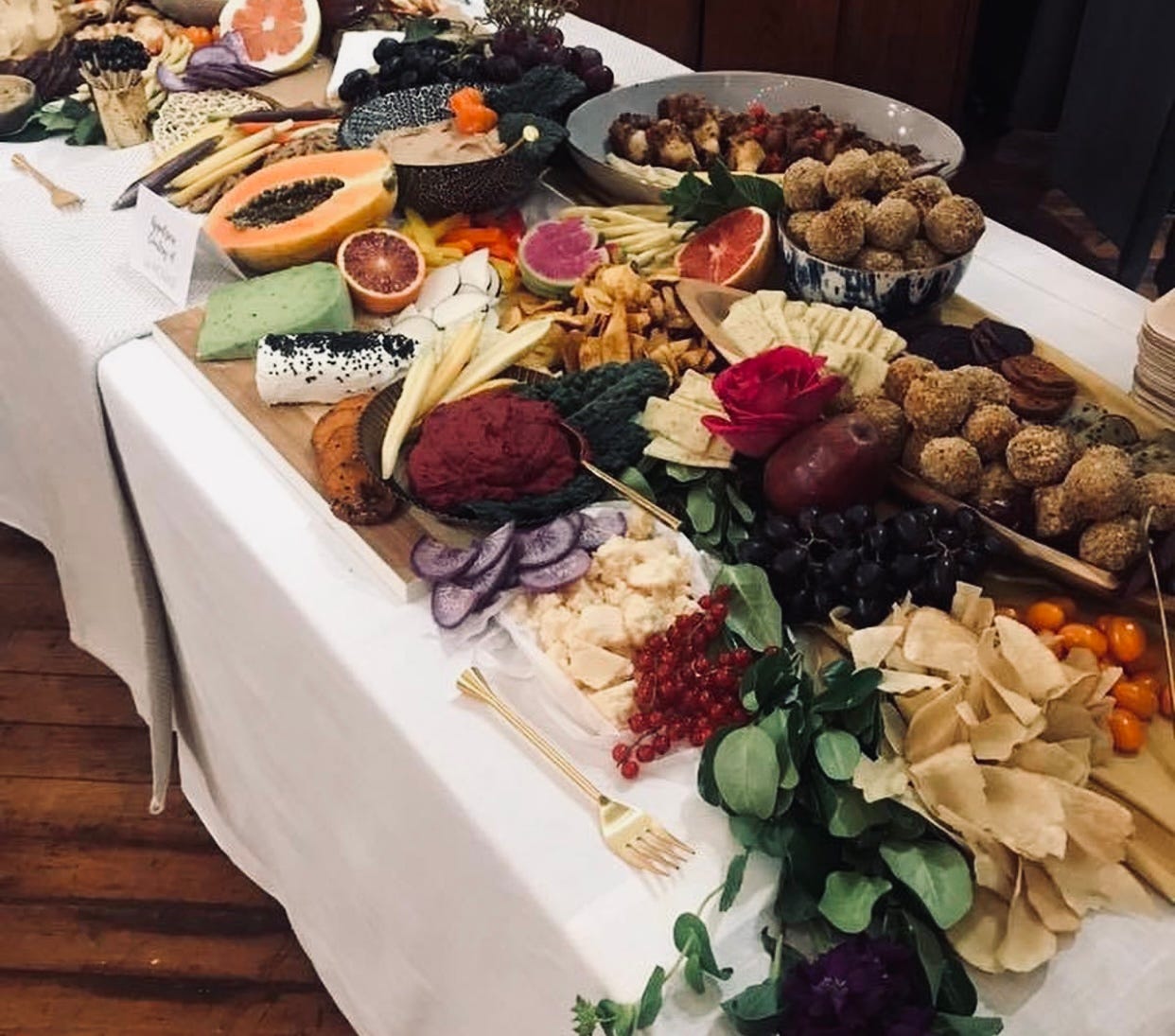
Goodridge’s connection to American history is one that she proudly shares with her children—and customers. William V.S. Tubman, her great-grandfather, was the longest running African head of state and the first African head of state to stay at the White House in 1943. He was considered the “father of modern Liberia.”
“He made very impactful accomplishments opening up the borders and trading in Liberia and West Africa to the world,” she says. Goodridge did more digging and discovered that Tubman was also the great-nephew of John Tubman, a free Black man living in Baltimore and the great abolitionist Harriett Tubman’s first husband.
“You gotta love social media for the good things,” Goodridge exclaims. “Someone had once sent me a post letting us know the connection was her last name Tubman and our great, great, maybe three times great uncle. That's who [Harriet Tubman’s] husband was and that's where her Tubman name comes from. She was married to a great-uncle of mine.”
Goodridge was born and grew up in Staten Island, New York, in an area called “Little Africa.” Here, she lived among a tight-knit Liberian community where everyone looked out for each other and ate well. She recalls those early years as formative for her culinary education.
“What was good for me was walking around and hearing Liberian English being spoken,” she says. “The [elder women] being out cooking the food on the side, you know, in the cut somewhere, we used to say under the tree. They would be roasting meat and that meat would be like kebabs, or meat on a stick, or chicken wings.
“The dry rice was my favorite thing to order; I would always get the chicken wings, dry rice and the salad. And the salad was always mango, onions and tomatoes in a fried pepper sauce. So, it was like this fruity, delicious vinaigrette salad, but then spicy, a habanero or scotch bonnet pepper sauce adding a little heat.”
Goodridge, who is now cooking in Brooklyn, says these are some of the dishes served at her dinners, plus the Liberian version of jollof rice.
“With Liberian jollof, we throw everything in there. So it's going to be very comparable to a jambalaya. There's going to be chicken in there. There's going to be shrimp in there. And you're going to have all the meats in there. While I noticed with other West African countries in their jollof, it's usually just the rice. Liberians, we want it all. We used to say, ‘You’re zooting, or you're showing off,’ when you’re making our jollof.”
Goodridge is especially zooting when she curates her signature “grazing” table for events.
“I used to describe it as a charcuterie spread on steroids,” she says. “I would do a typical charcuterie spread—cheese, crackers, you know, the fruits and veggies—but then I would infuse it with my African flavors. This is where my artistry really comes in is these grand grazing tables where you can get the familiar foods that are safe to eat. You know, not safe in the sense that you're familiar with them, but now your taste buds are about to just have a whole other experience.
“For example, there’s palm butter. Instead of serving it over rice, grab that plantain chip or that cassava chip or that carrot or that zucchini, and dip it in there and enjoy that. There are so many flavors in there. So, to include that in what you would think is just a traditional charcuterie spread, and to have this highlight of Afro fusion, is just amazing. That’s something I adore doing.”
Goodridge hasn’t visited Liberia since she was three years old, but she feels connected through the heritage food she’s modernized. In addition to the jollof rice and grazing tables, she whips up pepper soup with fresh seafood, rice bread made with grounded rice, fried plantains, Liberian doughnuts (twisted in an “s” shape and sprinkled with sugar and cinnamon), red rice and beans, cornbread and a gnocchi dish made from fufu.
Through the end of the year, Goodridge can be found cooking at Brooklyn’s Sunspot Foundation, where she serves as resident chef. It’s an opportunity for her to showcase Liberia’s food for a new audience as well as amplify up-and-coming chefs.
“It's a space for me to call home for a while,” she says, “but also an opportunity to work with other chefs and do a lot more collaborative work, bring in other chefs of the African diaspora, and just really allow us all to shine and have some fun together.”
Making the connection between Africa and the United States is something that quite a few talented culinary artists are passionate about. Here are several standouts.
Atelier. Michelin-starred chef Christian Hunter, who was also a 2023 James Beard finalist in the Best Chef: Northeast category, goes bold with his tasting menus on the North Side of Chicago. They typically pay homage to his African heritage with rich ingredients like harissa, cardamom, fermented honey and turmeric. New to the space is a five-course, family-style Sunday supper served at 5pm.
The Contemporary African Kitchen: Home Cooking Recipes from the Leading Chefs of Africa. Culinary tastemakers Alexander Smalls, a James Beard Award winning author, and Nina Oduro, co-founder of Dine Diaspora’s Black Women in Food, are set to release a book of 120 recipes from Africa’s most prominent voices in the food industry. It’s out Oct. 22 and aims to bring the best of the continent to homes all over the globe. Click here to pre-order it.
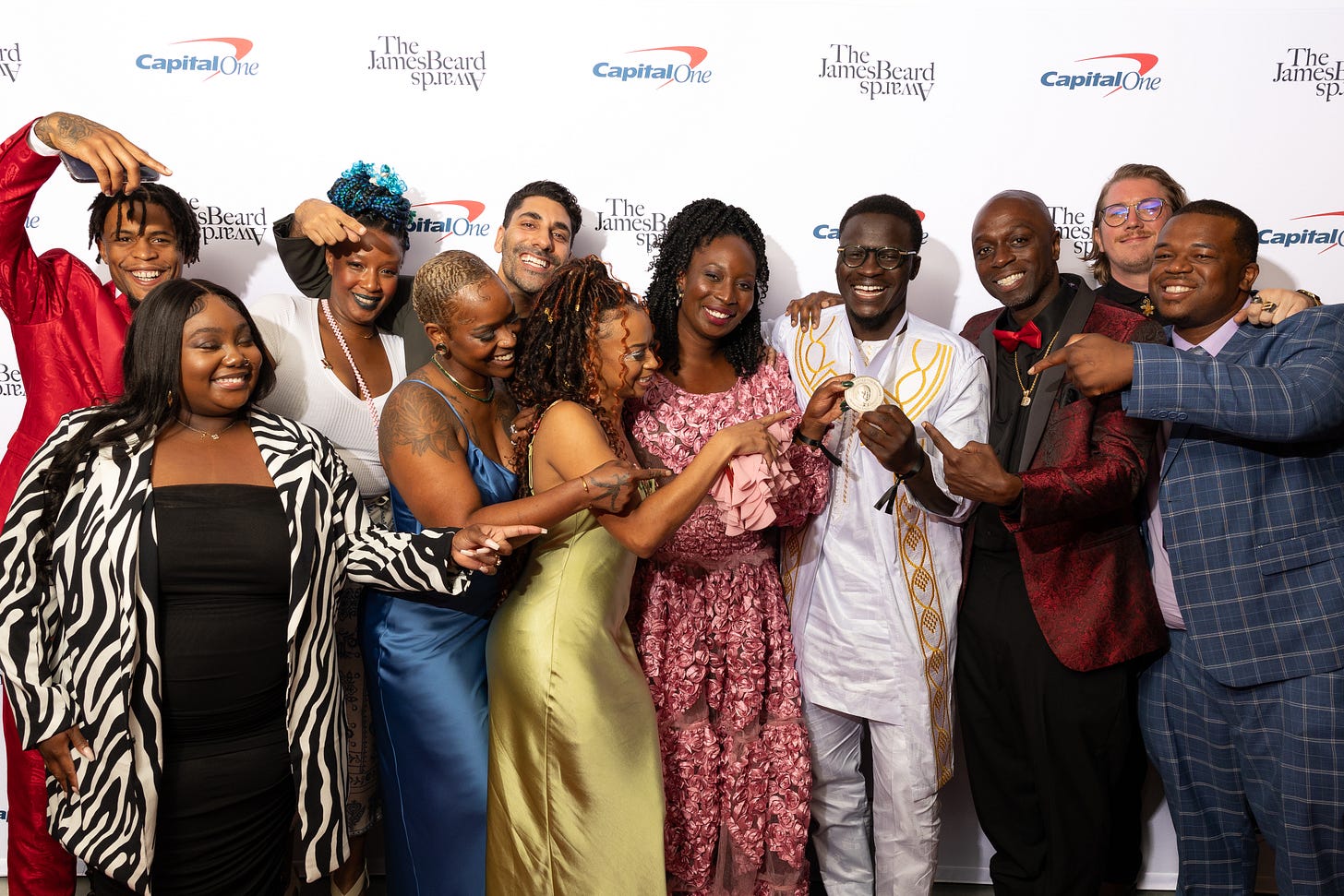
Dakar NOLA. This stunning and modern Senegalese eatery is still reeling after just winning a James Beard for Best New Restaurant. The tasting menu features local seafood from Louisiana with loving accents from chef and owner Serigne Mbaye’s homeland. Some larger dishes are served family style and in West African tradition.
Hibisbloom. Founder Affouet Price brings her beloved childhood beverage to the masses. Inspired by the sparkling West African hibiscus-infused beverage called bissap, the Liberian-born Price created a ready-to-drink, canned low-calorie version in refreshing flavors like Cascade Vanilla, Organic Red Hibiscus, Vanilla, Rose Water and Orange Blossom.
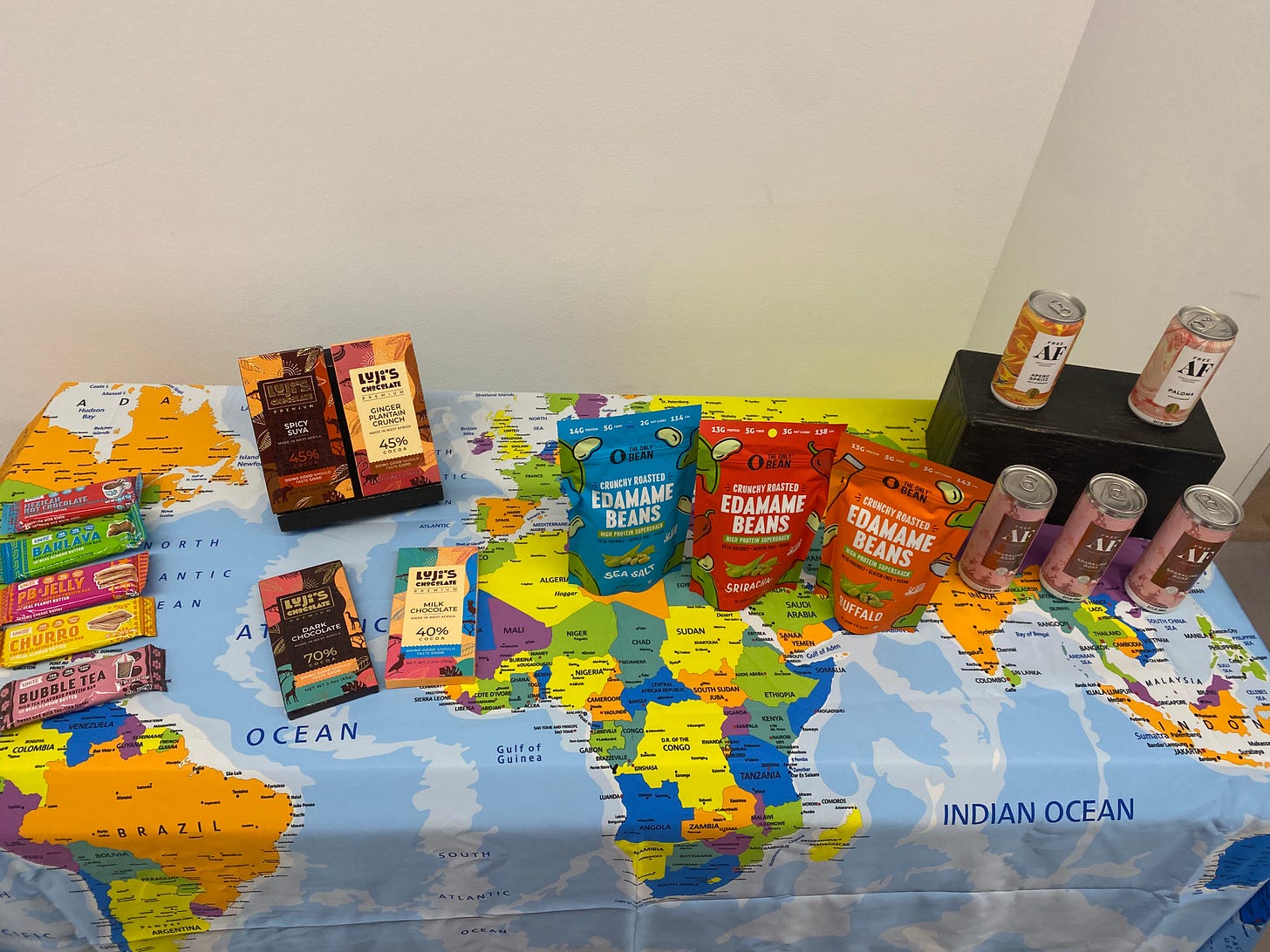
Luji’s Chocolate. One of the most delicious stories I uncovered at this year’s annual Natural Products Expo West show in Anaheim, California, this Nigerian chocolate brand was created by Iyin Akinlabi-Oladimeji, who wanted to help small farmers back home. A portion of the proceeds from every bar sold buys seedlings for these farmers to replant more cacao. All ingredients are sourced from Nigeria for these unique bars, including the chocolate, suya spices, ginger and plantains. Here’s a link to my recent segment on FOX-32 Chicago, which focused on global snacks.
POKS Spices. Similarly, a portion of proceeds from each sale of these Ghanaian-sourced seasonings benefit emerging food entrepreneurs in West Africa. Created by food scientist and food regulatory expert Abena Foli, the line of products is based on her father’s original recipes and have been modernized for American palates. Offerings include Green Chili West African Sauce, Jollof Rice and Red Chili West African Sauce.
Ubuntu LA. Celebrated chef Shenarri Freeman of Cadence New York fame developed this second stylish plant-based eatery after being inspired during her travels to Senegal, Nigeria, Ghana and other parts of West Africa. Based in West Hollywood, this one gets the star treatment with many A-listers paying the restaurant a visit. Menu highlights include charred okra salad, red red stew and jollof arancini.
Virtue Restaurant Chicago. Beard winner Erick Williams designed his Southern-inspired restaurant with significant African influences long before his trip to Cameroon in 2023. The curtains in the windows have patterns mimicking tribal African patterns, and that same pattern is reinforced through lace in the windows. Gold accents in the signage and foyer represent the mining that takes place in South Africa. And six light fixtures in the dining room are in the shape of jugs of the ones African women carried on their heads.
If you’d like to see what I uncover next, please feel free to subscribe to The Awakening—and follow me on social media @iamaudarshia.




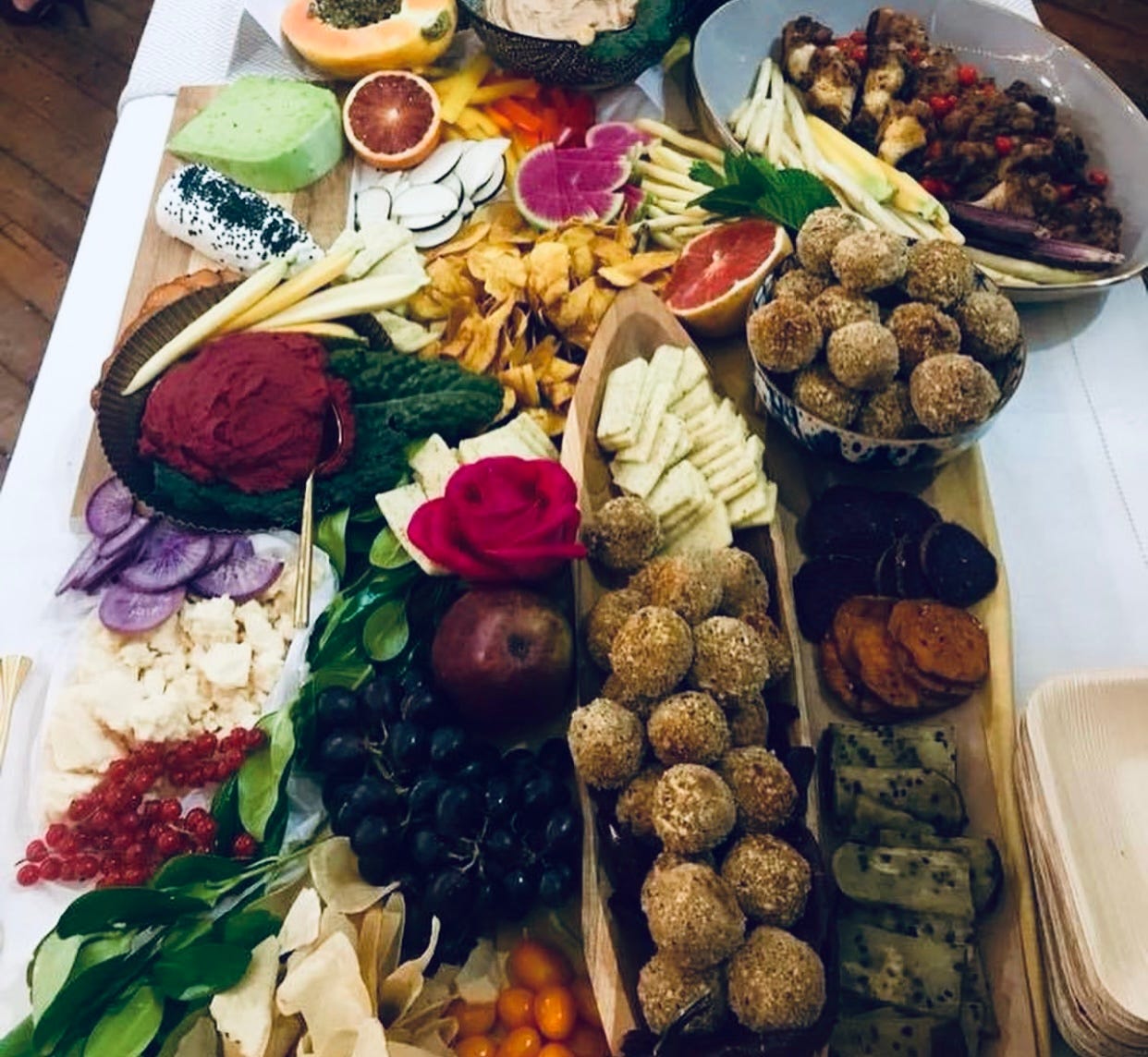
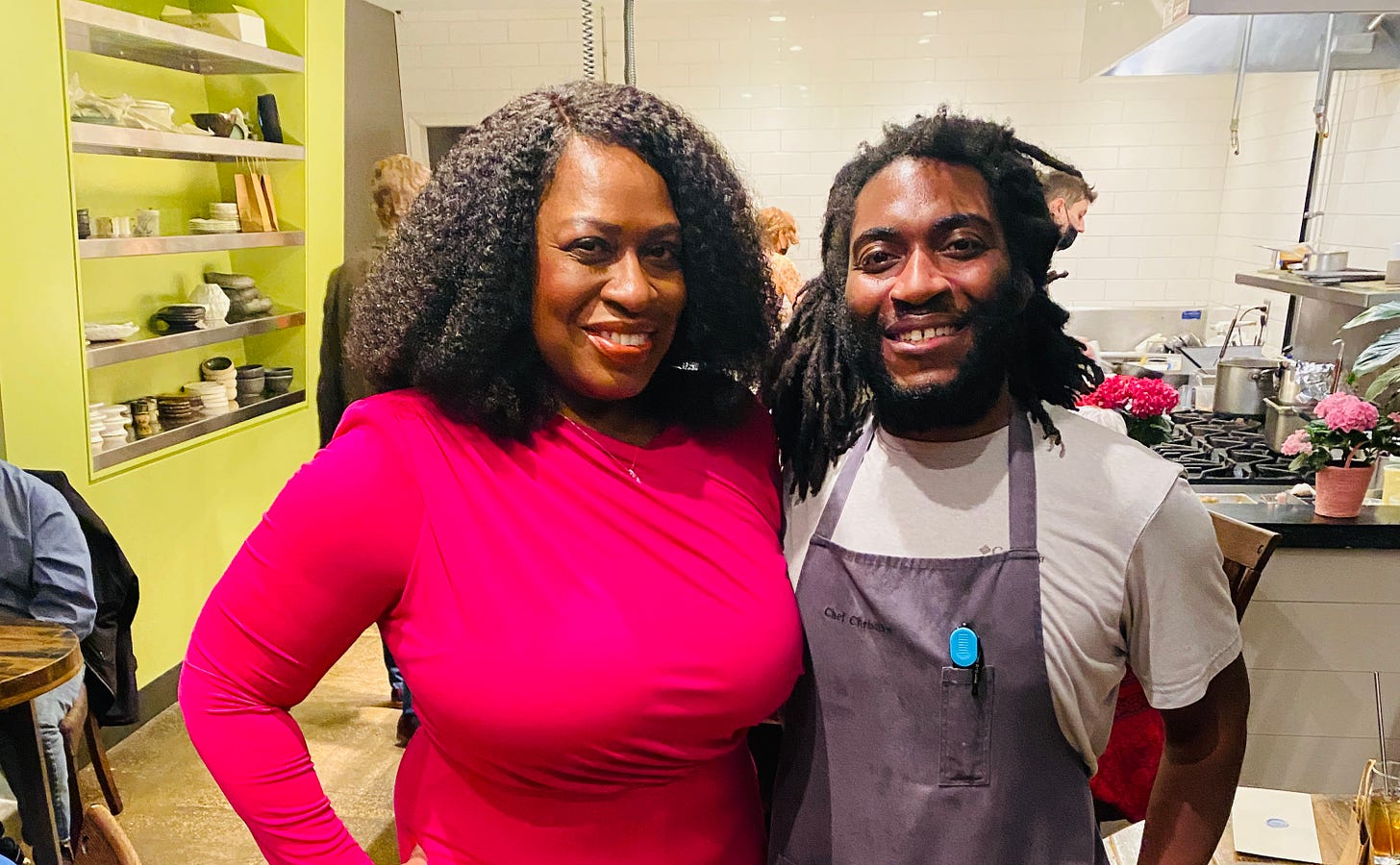
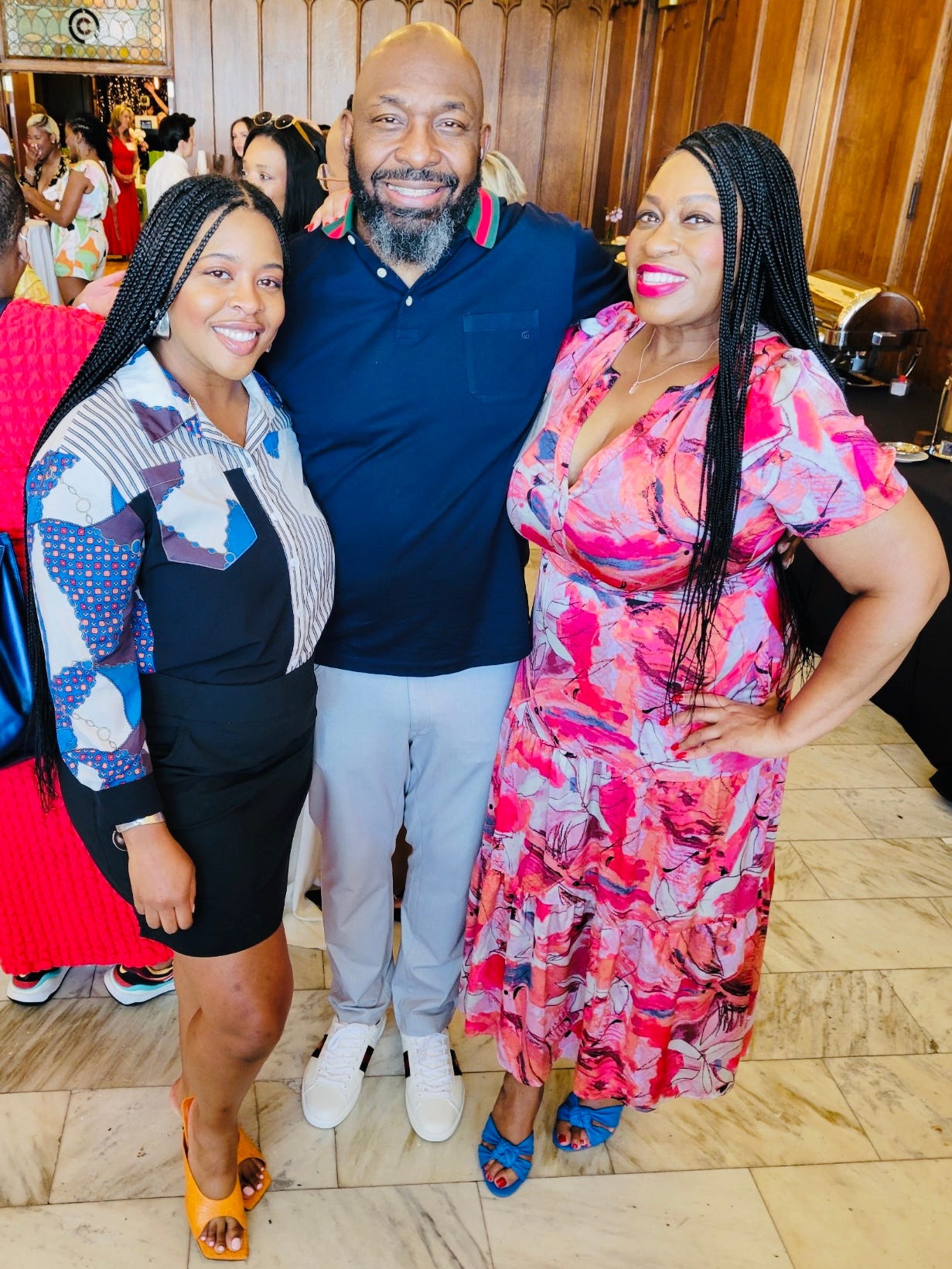
Great article! So many fantastic stories!